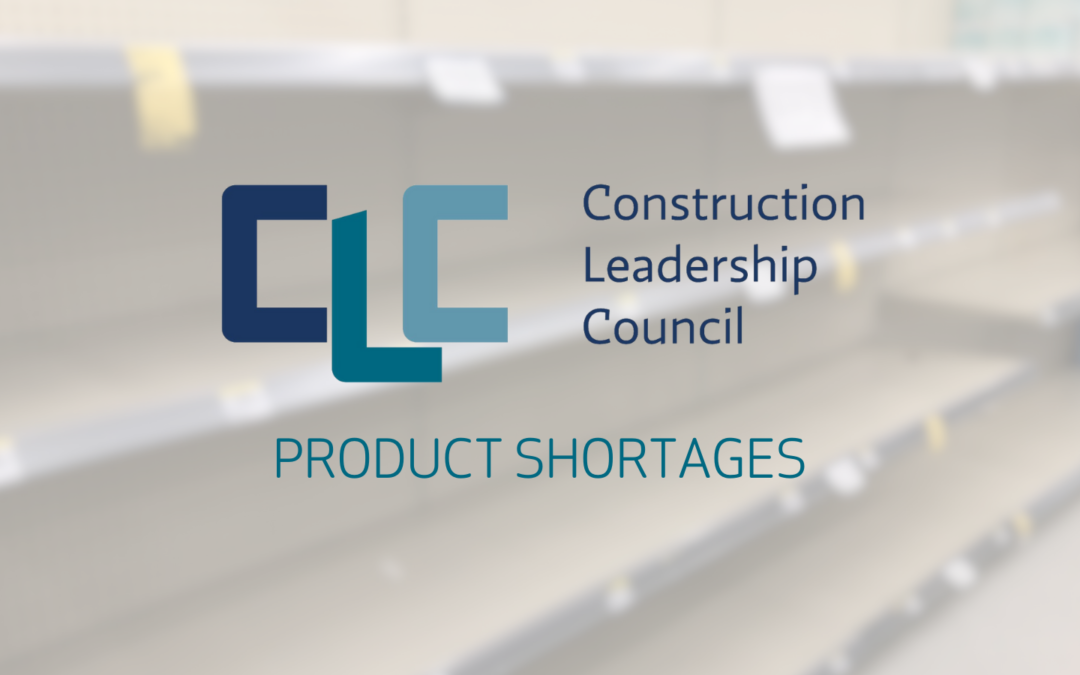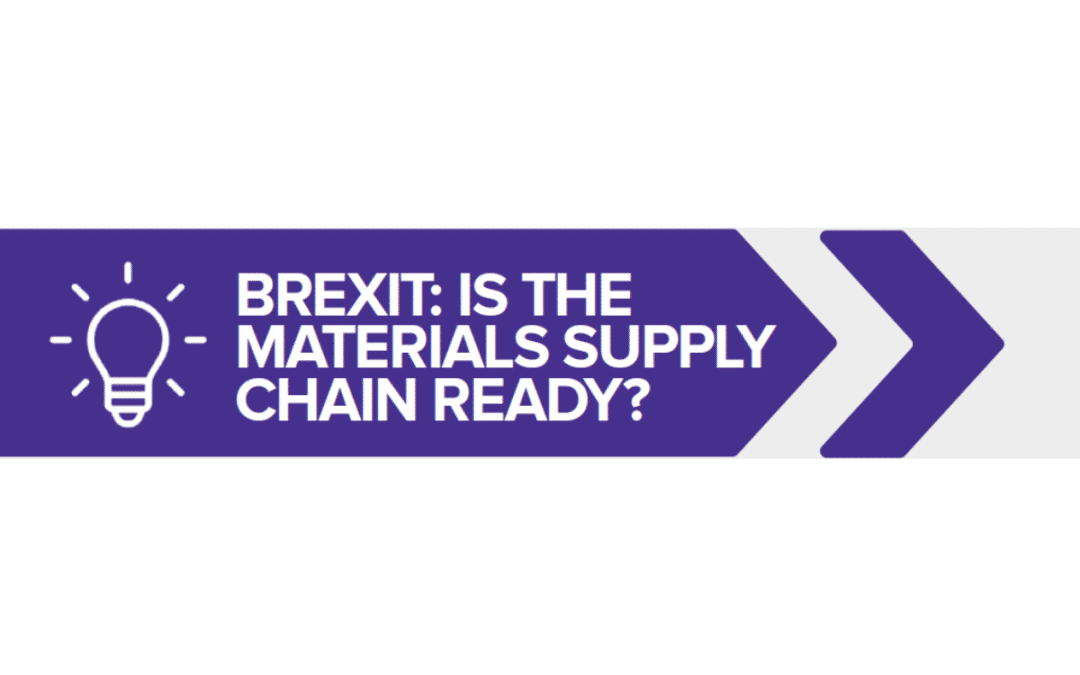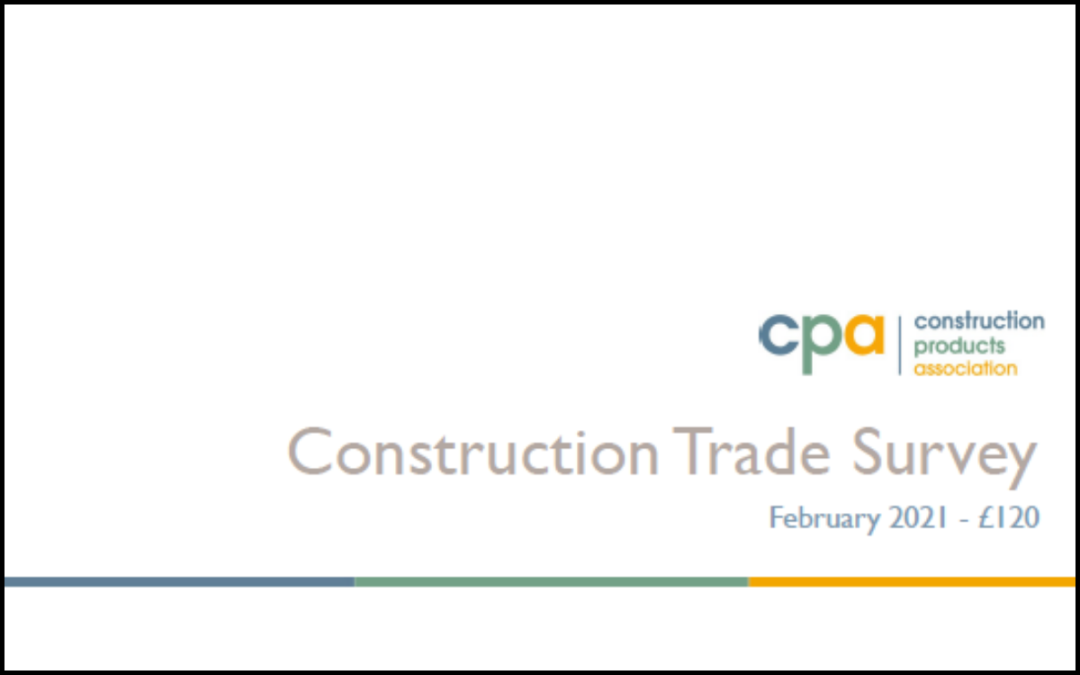
by Oscar Venus | Apr 15, 2021 | Market data, Material Shortages
The CLC Product Availability Group has issued a
statement on the availability of construction products, which confirms that demand will remain high throughout 2021 and urges
‘all users [to] plan for increased demand and longer delays, keep open lines of communication with their suppliers and order early for future projects’. It highlights timber, steel, polymer supplies and coatings as materials of particular concern, with both timber and steel experiencing very strong global demand.
Build UK is working with the Chartered Institute of Procurement & Supply (CIPS) to monitor the availability of construction materials post‐Brexit. There are no products currently RAG‐rated ‘red’, with most manufacturers reporting that the mitigation strategies they put in place have avoided significant delays or shortages, and they will continue to hold extra stock this quarter to ensure continuity of supply.

by Oscar Venus | Apr 8, 2021 | Market data
The latest information from Builders’ Conference shows that both the number and value of contracts have increased month‐on‐month since the start of this year. One year on from the start of the coronavirus pandemic, there were 621 contracts worth a total of £9.2 billion awarded in March. It is the fourth month in a row where the value has exceeded the monthly average of £6.0 billion in the year prior to coronavirus between April 2019 and March 2020. 42% of all the contracts awarded by value were housing (£3.9 billion), with road projects making up 13% (£1.2 billion) and entertainment and leisure projects 6% (£751 million).
The number of tender opportunities increased compared to the previous month but remains 25% below the monthly average pre‐coronavirus.

by Oscar Venus | Apr 8, 2021 | Main News Feed, Market data
The latest CLC People Survey is now live! Build UK is responsible for collating the results and we would be extremely grateful if all members could find 10 minutes to complete the online survey to help us measure the impact of coronavirus on the construction workforce one year on.
The deadline for responses is Friday 16 April and the results will help us to prioritise support for the sector.

by Clair Mooney | Mar 31, 2021 | Insurance, Market data
Significant cost increases and the introduction of new restrictions on professional indemnity (PI) insurance are preventing companies taking on projects and could delay essential work on building safety. These were the findings of a pan-industry survey of over 1,000 firms carried out by the Construction Leadership Council and published today.
The results pointed to widespread incidence of companies having to change the type of work they do because of restrictions on cover, with a quarter losing jobs because of tough conditions and limitations being placed on them by insurance firms. Even though two thirds of respondents said that less than 5% of what they do is high rise residential, almost one in three were unable to buy the cover they wanted or needed.
The survey was carried out from mid-February to mid-March and received 1,066 responses from a mixture of consultants, contractors and specialists. They also ranged in size with half of the respondents from companies with turnover below £2 million and 10% over £50 million.
The results* revealed that:
• Over 60% of total survey respondents have some form of restriction on cover relating to cladding or fire safety
• One in three of total survey respondents have a total exclusion in place for cladding claims
• One in five of respondents have a total exclusion in place for fire claims
• Over a quarter of total survey respondents have lost jobs as a result of inadequate PI insurance
• One in three respondents couldn’t do remedial work if they wanted to
• Almost a quarter of total survey respondents have changed the nature of their work due to inadequate PI insurance.
• Majority of respondents buy £10m or less cover with very few buying over £20m
• Almost half of respondents had been declined insurance by three insurers or more
• Two thirds of respondents are carrying a claim excess imposed upon them by their insurers
• Premiums have increased nearly 4-fold at the last renewal, having doubled the year before; the average rate is 4% of turnover but one in five who gave figures are paying more than 5% of their turnover for their PI insurance
This issue has been building for a while now and is starting to loom as our next crisis. The fact that 44% of businesses across the sector have been refused cover is telling and whilst 29% claim not to have been able to get the cover they need, the concern from conversations we have and analysis of cover is that I doubt many have cover they would consider ideal. Premiums continue to escalate and policies are contracting, everybody is paying for cover, but it isn’t aligned and there seems to have been little engagement from the insurance sector to address specific concerns rather than generic perceptions. Insurance is a financial service, but it needs to be engrained in the industry itself, it isn’t a just service, it is part of the infrastructure of the sector – we need to take a much closer look, as a supply chain. We need to consider carefully the role of options like integrated project insurance and wrapping insurance round the entire supply chain, ensuring insurance isn’t just another contract that seeks to write out risk, but is a core part of how we responsibly manage this. We welcome this work from the CLC – FIS is exploring a number of options for our sector, building on our Product Process People framework and, if any companies or individuals are interested in getting involved in our focus group, let me know.
FIS CEO Iain McIlwee
The survey results are available here
*For consistency all results are given as percentages of total respondents (1066), but some questions were answered by fewer respondents.

by Clair Mooney | Mar 15, 2021 | Market data
Build UK is working with the Chartered Institute of Procurement & Supply (CIPS) to monitor the availability of construction materials post‐Brexit. Most manufacturers have reported that the mitigation strategies they put in place have avoided significant delays or shortages, and they will continue to hold extra stock for the forthcoming quarter to ensure continuity of supply. No material is RAG‐rated ‘red’ and the majority of ‘amber’ items are M&E products, including building management systems, data hub equipment, external luminaires, street lighting, lighting control, pumps, press units and booster sets, which are experiencing delays of up to two weeks although this is expected to be a short‐term problem only.
Other materials rated ‘amber’ are Steel and Timber, which have experienced significant price increases due to supply and demand issues. There has been increased demand from China as it recovers from the impact of coronavirus, as well as challenges with new customs requirements and a lack of transport availability. A risk to manage over the next few months is the increased cost of raw materials, particularly Aluminium, Copper and Methyl Methacrylate (MMA), which are all thought to be coronavirus, rather than Brexit, supply and demand issues.

by Clair Mooney | Feb 22, 2021 | Market data
The Q4 Construction Trade Survey signals a continued, but tentative, recovery for the construction industry following the disruptions to activity from Covid-19 between March and May. SME building contractors and chartered surveyors recorded an increase in workloads during Q4, whilst product manufacturers on both the heavy side and the light side reported quarterly increases in sales.
FIS members can download the report here. More data from the CPA is available within our Membership Hub.






